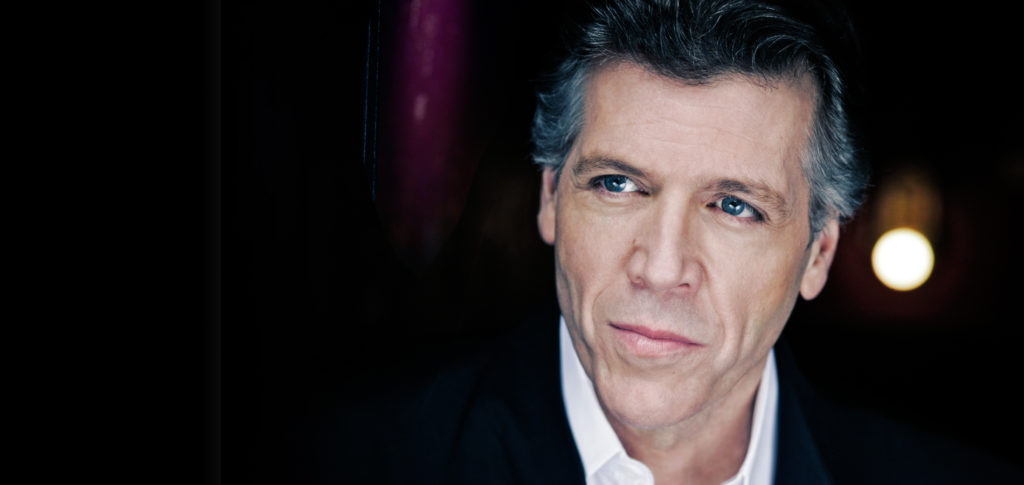“Hampson and Rieger in songs of love and loss at the Konzerthaus, Vienna”

“In an evening characterized by excellent partnership and wonderful programming, longtime partners in song, baritone Thomas Hampson and pianist Wolfram Rieger presented works by Liszt, Meyerbeer, Chausson, Saint-Saëns, Rossini, Mahler and Dvořák at Vienna’s Konzerthaus.
A thoughtfully constructed set of German songs by Franz Liszt opened the evening. With few exceptions, Liszt’s some 80 odd vocal works have found only an uneasy place in the Germanic Lied repertoire. His settings of text is not always organic, and the liberties he often takes in terms of text repetition are extensive . . . Hampson and Rieger opened with three of his Heine settings, the first two parallel settings better known from Robert Schumann’s Dichterliebe and Op.24 collections, respectively, and the third a dissonant, embittered outcry against love and art. The duo were very much of one mind throughout the set, and both also enjoyed moments of individual brilliance. Hampson took some particularly interesting risks at the end of Es rauschen die Winde, a dark Rellstab setting where spring’s love and life is extinguished by cold, blustering winds. Rieger was a study in variety of articulation and touch – from his beautiful postlude in Im Rhein, im schönen Strome to the colorful, virtuosic showpiece which ended the Liszt set, Drei Zigeuner . . .
Hampson’s beautiful and universally recognizable vocal timbre served him well through Chausson’s melancholy Le temps des lilas and Le chevalier Malheur. The latter, an amazing poem by Verlaine, describes the visit of the knight “Misfortune” who pierces the heart of the protagonist with his lance, then reaches inside and painfully kills his old heart. To the protagonists’s surprise – an astonishment reflected in musical transformation – a new heart, “pure and proud” grows in its place . . . This attention to delivery, effective interpretation and intelligent programming is what make the Hampson/Rieger duo such a consistently beloved force in concert.
Themes of nature, love and loss continued into the second half, with works of the composer with whom Hampson’s name is perhaps most closely linked, Gustav Mahler. The beautifully constructed set, including selections from Des Knaben Wunderhorn, a youthful composition Frühlingsmorgen and even Ging heut morgen übers Feld from the Lieder eines fahrenden Gesellen traced love from its infatuated beginnings – a lover gently cajoling his sleeping sweetheart to wake – all the way to its tragic end in Nicht Wiedersehen.”
Chanda VanderHart – Bachtrack.com